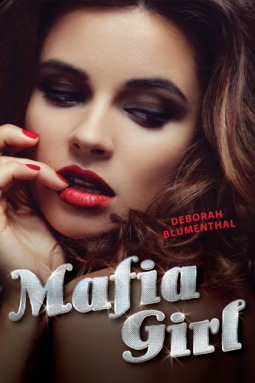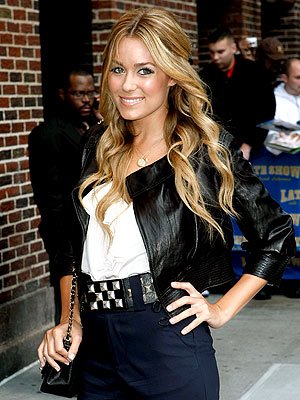 Mafia Girl by Deborah Blumenthal
Mafia Girl by Deborah Blumenthal Published by Albert Whitman & Company on March 1, 2014
Pages: 270
Format: Hardcover
Source: Purchased by Reviewer
Add to your Goodreads TBR shelf.
Purchase Links: Amazon





What's in a name? Everything if you have my name." At her exclusive Manhattan high school, seventeen-year-old Gia is the most hated/loved girl in school. Why? Her father doesn't have a boss. He is the boss--the capo di tutti cappi, boss of all bosses. Not that Gia cares. But life gets complicated when she meets a cop she calls "Officer Hottie" and feels a suprising chemistry. Then Vogue magazine wants to feature Gia in a fashion spread about real-life bad girls. On top of this, she's running for class president. Can Gia step out from under her dad's shadow and show everyone there's more to her than "Mafia Girl?
I’m like a Sofia Coppola film. I love pop music, pop culture, trendy clothes, and glittery, sparkly, never-ending-shimmery things. On sunny days you can find me driving to work with my sun roof open, jamming Britney Spears and admiring how my freshly painted nails contrast with my gold steering wheel cover. The truth is, I LOVE bubble gum pink, Chanel lipstick, and pretty things. So does Gia. Sounds superficial, right? But zoom in on the nightstand beside my bed and you’ll find some kind of YA or Historical Fiction novel next to a biography of Dante Alighieri, Keats, or Maria Callas, or a book on literary theory. There’s some serious juxtapositioning going on in my life and I saw some of those same qualities in Gia. I think the things I just divulged about my super witty and hip personality are why I liked Deborah Blumenthal’s Mafia Girl so much. Deborah mixes the heavy with the lite in this novel and the effect is like creme brulee for the senses.

Gia is a Prada-toting, Rhianna-listening, family-loving, loyal chick. She’s dynamic. Gia drives this story with a constant stream of internal dialogue filled with acronyms and colloquialisms. Her thoughts are as fast, dirty, and diverse as a New York subway. Gia is living it up in Manhattan with her family and goes to a super exclusive school that you have to pay to get into. Gia has a bright idea to run for class president one day because she wants to make her father proud and defy what the haters think of “The Don’s” daughter.
Despite being a very materialistic character, we are given glimpses of a deeper layer to Gia when she faces internal/external crisis that are brought on by association. There were scenes in this story that I sat back and thought to myself, “Dear Lord, puh-leeeaze do not let my daughter turn out like that or hang out with people like that.” But this character that Deborah is letting us be a part of for a few hundred pages is a pitch perfect example of girls in that socioeconomic context. This is where that creme brulee comparison comes in; it’s like we are witnessing Gia on the brink of breaking through that hard, superficial layer to get to the good stuff- of who she is outside of her father’s shadow.

Michael is the ingredient that makes this story a romance. He’s a hot cop with a complicated past, and he meets Gia after pulling her over. Although I felt like the ”romance” was an afterthought in this book, it still delivered some major sizzle in an “Alison DiLaurentis+Ezra Fitz” kind of way. The back-and-forth I-want-to-but-I-shouldn’t dramance (did I just invent that word?) between Michael and Gia (I’m shipping Mia) was ridiculous, yet romantic and just right. I would have liked more Mia time in Mafia Girl but I’m grateful that Michael wasn’t just some hot guy; he’s fleshed out pretty well despite his sparse appearances.
The (awesome, glossy, bling-bling, YES) cover of Mafia Girl might be misleading. Yes, it’s ”wildly entertaining” and full of all kinds of shallow shenanigans but there are layers here that would challenge any Chicago-style deep dish pizza. We get a private-eye view of the every day musings of a complicated, spoiled rich girl who’s grasp on her immediate reality is unraveling. She’s always played dumb about the line of work her father is in and she’s never asked questions about it. But there’s a shift in Gia’s paradigm that reveals a moving, coming of age story. I loved that Deborah Blumenthal showed the contradictory characteristics of a Mafia family that is as immersed in their faith as they are in the crime that keeps them in Chandon and Chanel. This novel epitomizes what it is to finally start questioning your beliefs, your morals, your actions, and how that changes a person. I’m glad Gia was brave enough to take us along for that life-changing ride.Mafia Girl was on point. Deborah infuses just the right amount of stereo-types and name dropping (The Sopranos, The Godfather) to give this book flavor. Nothing’s over done, everything’s just right. Maybe it’s because my dog’s name is Guido. Maybe it’s because I’m Italian and grew up hearing stories about my family and the mob. Whatever the reason, I loved this book and recommend it to SMART READERS. It takes a brainy kind of person- someone who’s able to think outside of the box and their own experiences- to really enjoy Mafia Girl.



Leave a Reply